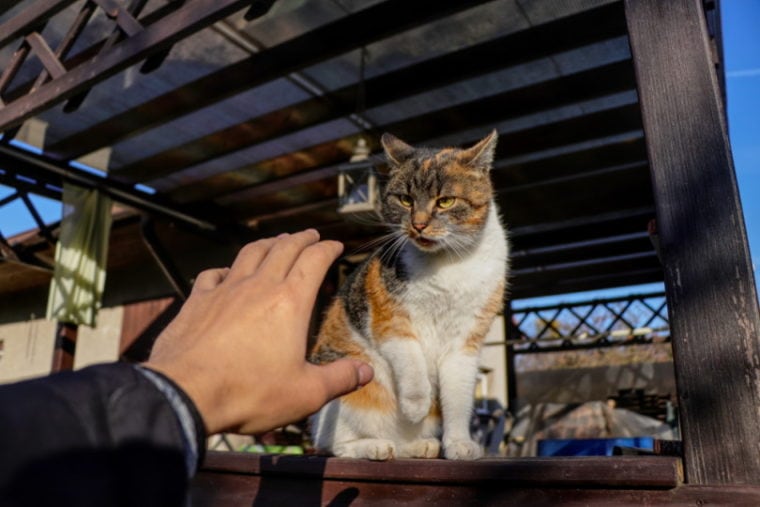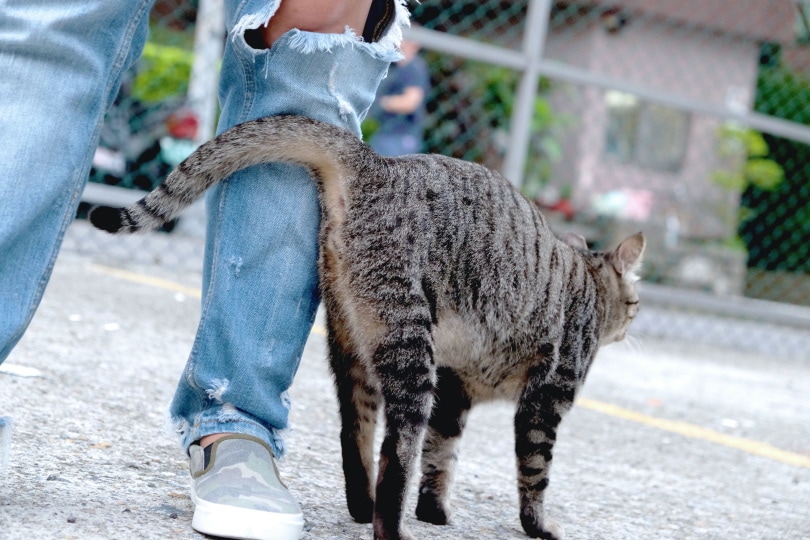
When you hear stories about heroic pets attacking intruders to protect their families, it’s natural to assume they’re talking about dogs. Cat owners, especially those living alone, might wonder if their kitties also offer any protection when it comes to these dangers. While it’s not as common, some cats have been known to attack intruders, often making headlines when they do!
In this article, we’ll discuss whether cats can recognize an intruder and how they might do so. We’ll also talk about why your cat would feel the need to attack and how to recognize signs of agitation or concern in your pet.
Do Cats Know What an Intruder Is?
While no studies examine whether a cat understands what an intruder is, we can draw some conclusions based on other evidence.
First, despite their reputation as snobs, most cats form bonds with their human companions. A 2019 study found that 65% of kittens observed for research formed secure attachments with their owners. From this, we know that cats are aware of who their people are and are often firmly attached to them, even to the point of feeling protective.
In addition, cats routinely scent mark their territory, which in their mind includes both their home and human family. When your cat head butts you or rubs up against you, they’re leaving their scent on you. Research has shown that a cat’s sense of smell is better even than a dog’s when detecting differences between scents.
Because of this, a cat would most likely be aware that an intruder smells unfamiliar, even if they don’t necessarily grasp the concept of a home invasion and burglary.

Why Would a Cat Attack an Intruder?
We may like to believe that our cats would attack an intruder merely to keep us safe, but there are several different possible reasons.
As we mentioned, cats are fiercely territorial and do not appreciate any threat to their space. Particularly territorial cats may behave badly toward any new person or animal in their home, even ones who come in peace—such as visiting family members or a new roommate. Cats could feel the need to attack intruders for violating their personal space.
Cats could also attack because they feel their safety is threatened. Generally, cats seem to prefer to avoid confrontations with a perceived enemy, especially one larger than they are. However, any veterinary professional who’s found themselves on an angry cat’s naughty list will tell you that isn’t always the case! A cat will defend themselves if they feel it is necessary.
Finally, cats may indeed attack an intruder to protect their owners. We already mentioned the scientific evidence that cats can bond with humans. Other studies have shown that cats can recognize and respond to human emotions and facial expressions.
A home invasion is a scary and stressful situation, bound to cause strong emotions in a person. If your cat senses those feelings, they may react strongly, possibly leading them to attack an intruder.
Signs Your Cat May Be Preparing to Attack
Even before you are aware of any danger, your cat’s more acute senses may warn them of an intruder. A concerned or agitated cat often displays physical signs of distress, including:
If the cat progresses to an attack, they may charge an intruder, swat, scratch, or bite them.
Despite their small size, cats can inflict some damage on a person, with the additional danger of causing disease and infection when they bite.

Are Some Cats More Likely Than Others to Attack Intruders?
A cat’s temperament probably does play a role in determining whether they’re likely to attack an intruder. Hyper-territorial cats, for example, may be more prone to aggressive responses. A cat who is naturally high-strung, anxious, or bad-tempered also may be more prone to attack.
While there are no studies to prove this, it’s thought that cat breeds who are more “dog-like,” such as Siamese, Maine Coons, or Burmese, are more likely to show protective and guarding tendencies.
In Conclusion
Whether an intruder is human or animal, cats have been known to come to the rescue. However, there’s no good way for you to predict how your cat will react in such a situation. Yes, your cat may attack an intruder, but that doesn’t mean you should rely solely on them for protection! Fortunately, owning a cat provides many other benefits beyond just their potential for keeping you safe.
Featured Image Credit: Vaclav Sonnek, Shutterstock







